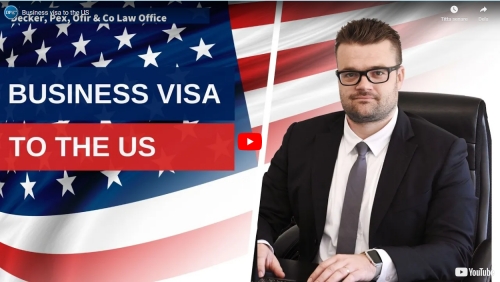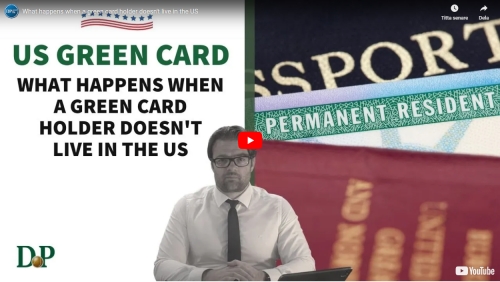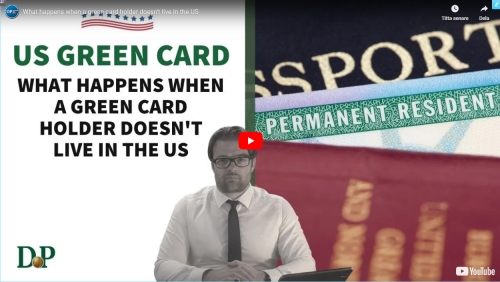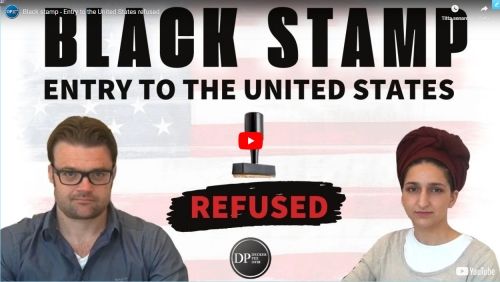Our law firm, Decker, Pex, Levi, specializes in helping clients obtain visas, residency status, and citizenship in the United States. We assist in document preparation, business plan organization, and securing E2, E1, and EB-5 visas to the US.
What is the EB-5 Visa?
The EB-5 visa is a “fifth-preference” visa, falling behind other immigration categories for spouses, children, and relatives of US citizens in terms of priority. However, this doesn’t mean that processing your application is deprioritized or delayed – it simply implies that the right to obtain a Green Card through investment is not guaranteed, and the requirements for precision in the application, documents, and business plan are more rigorous.
Since its inception by Congress in 1990, over 100,000 EB-5 visas have been issued. However, in recent years, up to 40% of all Green Card applications under the EB-5 program have been denied or sent back for reconsideration at some stage. Issues often arise due to missing documents, an unclear business plan, bankruptcy, or financial difficulties in the business.
Where and How Much Can You Invest Under the EB-5 Program?
You may invest in a new private business established after 1990, which you either start or expand by at least 40% through your investment. Alternatively, you can invest in a regional center that has been approved by the US Citizenship and Immigration Services (USCIS) and a specific US state.
Most investments are made in regional centers, which often involve large-scale projects (such as road construction, shopping centers, hotels, etc.) where the foreign investor is one among many and is not required (or able) to actively manage the investment. Investors in regional centers are allowed to work in any position and location in the US, while those who invest in private businesses can only work for that business. There are over 600 regional investment centers in the US, which open and close to investment depending on the number of investors and each center’s specific needs.
Furthermore, the requirement for a detailed business plan is less stringent for regional center investments than it is for private business investments. The center itself will provide the investor with most of the necessary documentation related to the economic plan. This contrasts with private business investors who need to complete the complex I-526 form themselves (or with expert assistance).
This option appeals to those who primarily seek to obtain a Green Card for themselves and their family, with the goal of establishing a highly profitable US business being secondary (or for those who wish to manage a separate business in the US without the hassle of extensive reporting or adhering to program requirements). The downside is that the return on investment in a regional center tends to be relatively low, albeit secure. Another drawback is the requirement to hold double the investment amount as a safeguard in case the investment fails.
Investment amounts required for this visa vary with inflation and the investment location. The minimum investment (as of 2024) is $900,000 for rural areas, areas with high unemployment (Targeted Employment Areas), or higher-risk regions. For more promising locations where returns are expected to be greater, the amount is $1,800,000. While the investment amount for regional centers may be lower, investors may still be required to show they possess double that amount. In any case, the source of funds must be “clean” – they cannot originate from illegal activity. However, unlike other investment visas, the investment funds can come from loans or mortgages, which the investor must repay.
Obtaining a Temporary and Permanent Green Card for the Investor and Family
Once the application is approved, the investor, spouse, and unmarried children under 21 can move to the US as holders of a conditional Green Card for two years. Family members can live, study, and work anywhere in the US (unlike the investor who may be limited to working in their business if it is a private investment). If the business remains active after two years and still employs at least 10 workers, the investor must submit an I-829 petition to obtain permanent resident status – a “permanent” Green Card – before the conditional Green Card expires.
If the investment is in a regional center, the center will provide documents proving compliance with these conditions. A private business investor must gather these documents independently. Should the business fail to meet the program’s conditions, the investor and their family will lose Green Card status.
It may take several years to receive a permanent Green Card, but an extension of the conditional Green Card (for travel purposes, etc.) can be requested at a nearby USCIS center. Once permanent residency is granted and the required stay in the US is completed, investors may begin the process of naturalization to become US citizens.
What If I Don’t Have a Large Sum for Investment in the US?
Unsurprisingly, the most popular investment program for Israelis is not the EB-5, which requires close to a million dollars or more, but the E2 visa. This visa allows Israelis to establish or purchase at least 50% of an active business in the US with almost no defined minimum investment amount, provided that the business employs a certain number of US citizens (greater than the number of employees and managers coming from Israel). Both the investor and key employees/managers from Israel can bring their families as dependents.
As long as the business continues to operate, the investor, Israeli employees, and their dependents can continue living in the US. While this investment visa does not have a direct path to a Green Card, nothing prevents someone living in the US from obtaining a Green Card through another available route.
How Can Decker, Pex, Levi Help You?
Applying for the EB-5 visa, compiling all the required documentation, processing the case, proving the business meets the visa’s conditions, and eventually applying for a permanent Green Card can be complex. Whether you are looking to secure an EB-5 visa, another US investment visa, or any other US immigration status, our office is here to assist with all US immigration and visa matters. We can also connect you with local experts regarding economic and business-related issues.













